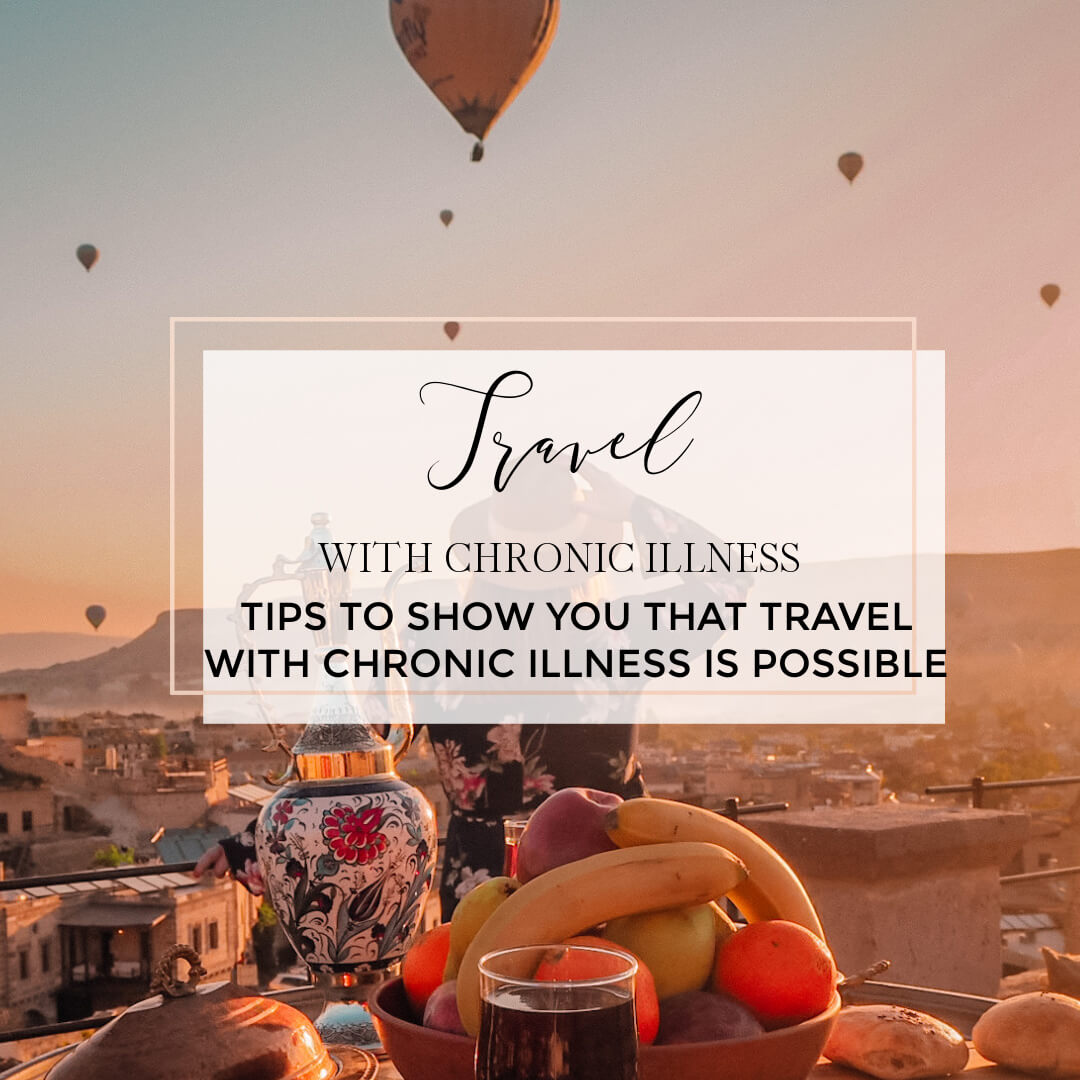
Can you really travel with chronic illness? I am here to tell you that YES YOU CAN! I am not going to lie and say that it is as easy or carefree as travelling as a healthy person. With my tips for travelling with chronic illness I want to show it is possible, and planned properly it is extremely pleasureable and rewarding.
I have always loved travel, ALWAYS! But it was only when I couldn’t travel that I realised just how much it meant to me. I developed my chronic illness while travelling. In the Summer of 2000 I was a carefree student living the dream in Montauk, New York. It was a summer of fun until I got bitten by a tick carrying the bacteria that causes Lyme disease and ended the summer in hospital with heart failure. While I was in ICU and later when I was recovering in coronary care my dad would bring me magazines and fresh strawberries every day and told me to pick out clothes for the holiday he was going to send me on when I got better.

The holiday never transpired but during that time it was my motivation to get better. Exploring the world was that important to me. In the following 18 years my Lyme Disease progressed to the point where I was severely disabled. I couldn’t walk or even feed myself. My husband became my full time carer while still having to work full time to provide for our family. I am a medical scientist and had to give up my career during those dark days because I was simply too ill to work or even function for myself without full time care.
That period where I was completely bedbound and confined within the four walls of my bedroom were the darkest days of my life but again it was the thoughts of travel that kept me sane. I discovered Instagram and explored the world through my favourite travel bloggers never thinking that one day I would become one of them. I discovered places that I had never heard of and made a bucket list determined to get well enough to visit them for myself one day.
Eventually I did get well enough to travel. I will never forget the moment that I stood in Cappadocia Turkey looking out to a horizon filled with colourful hot air balloons. It was sunrise on my 40th birthday and I cried with sheer relief and emotion because I made it to one of my bucket list places.

Why is travel so important?
So if it is not easy, and even if it is sometimes downright difficult to travel with chronic illness, why do we do it? Travel is so important for human happiness and mental health. One of the greatest advantages of travel is that it takes you on a journey into new worlds that you would have never been exposed to. Travelling allows you to meet people of different cultures, with diverse traditions and distinctive lifestyles. As you travel and discover these new found worlds, it is important to take a moment to reflect not only on the differences that you observe in lifestyle and behaviour but also on the things that unite us. This practice will not only broaden your mind but will allow your authentic self to surface. Travel is the best education that you will ever get. Why should someone with chronic illness or disability be denied that?

Tips for travelling with chronic illness
If you assumed on the day of your diagnosis that your travelling days were behind you I am here to tell you that you are wrong! You just have to travel a little differently and mindfully. I may have had to make changes to the WAY I travel, but I am travelling more than ever and to places off the beaten path! I have learned a few things along the way mostly by trial and error. There were no guides that helped me through my illness so I am happy to share what I have learned with you. Here are my top tips for travelling with chronic illness.
Tip 1: Don’t let anyone tell you what you can and can’t handle (and yes that includes me!)
YOU and only you knows your body best. When you develop chronic illness you become intrinsically intuned with how YOUR body works, or doesn’t as is often the case. If you’re dealing with an “invisible” illness, like I was, you will have the “But you don’t look sick brigade” telling you what you should be able to handle and wrongly assuming that you can do more than you can. I can’t tell you how often I used to let people pressure me into cramming it all in when what my body actually needed was downtime. This idea of pushing through illness is a myth and will only make you worse in the long run. Your body tells you that it needs rest for a reason so you better get used to listening to it.

You can sleep when you are dead philosophy just does not apply to someone dealing with chronic illness. Rest is restorative so do it when your body asks for it, even if that means missing out on a major tourist activity. Your health is the priority here, even above the need to travel, so no pushing yourself to do things that you physically are not able for. Don’t be afraid to say no. You want to enjoy travel and that won’t happen if you are tired or in pain, so do it at your own pace.
Tip 2: Find a travel partner who is happy to travel at your pace
Speaking about pace it is important to find a travel partner that understands your illness and is happy to travel at yours. In previous trips with my sisters or friends for example I would be so afraid of slowing them down that I wouldn’t say anything and push myself to the limit, and crash for weeks following the trip. One of my sisters likes to stay up late and sleep until afternoon, whereas I am an early riser and prefer an early night and throwing my sleep pattern off to accommodate her used to really affect my illness. Even on my honeymoon I forced myself into going to a nightclub with my husband because he wanted to try the nightlife and the overstimulation had me fainting in the taxi and in a catatonic state the whole next day because my body just shut down.

As I said previously, health is the priority here not being afraid to offend anyone or let them down. If they really want to do those things let them do it alone but never be afraid to set your own pace for travel and stick to it. You know your own limitations and the one thing that you can guarantee with chronic illness is that they will be different for everyone. When you’ve ignored your own body’s signals and overdone things to the point that you end up bedridden in agony for days, they won’t be affected at all. Therefore, they don’t get a say. Deal?
Your illness may also mean that you have limitations in the restaurants you can visit due to dietary issues so it is important that the person that you are travelling with understands this. Histamine issues, like I have developed, might mean you need to eat a low-histamine diet. I used to follow an autoimmune diet but early last year myself and Mister Lavin decided to go fully plant based and we haven’t looked back. Not only is it better for your health, it can reverse heart disease, gives you that extra energy that those with chronic illness so desperately need, but you will also be doing your part for the environment.

I am lucky in that my husband has adapted to the pace that I am able to travel at and he really enjoys a more slow paced travel experience. This slower pace has really allowed him to fully immerse himself in the culture of the places that we visit and he admits that he genuinely prefers travelling in this way. He gets far more from this experience than rushing to all of the major tourist attractions and staying up late to pack in the nightlife. So make sure that you have someone with you who understands your needs and is willing to do the work to support you.
Tip 3: Make the hotel part of your travel experience when travelling with chronic illness
One other side of this slower pace of travel is that you will probably spend more time in the hotel so pick a good one! Gone are the days where you will spend so little time in the hotel that you simply just need a bed to sleep in. Going on holiday with chronic illness means the potential of a full on ‘flare-up’ while you are away and you will need a comfortable space to rest in peace. Since travelling with my chronic illness we have discovered that the right hotel can be part of the whole travel experience. In fact, hotels like Ashford Castle can BE the travel experience in itself.

So spend some time before your trip researching and picking a hotel that is comfortable and will meet your needs. Everyone’s needs will be different but there are hotels all over the world that will suit your style. We personally love hotels with personality. As we spend quite a bit of time resting in the hotel we love to choose quirky, unique, boutique hotels like this boutique hotel in Prague. On our blog we like to specialise in boutique hotels so you will find lots of suggestions on our page.
Accessibility isn’t a huge issue for me at the moment but I’ll never forget staying in a beautiful suite in Sorrento when my illness was quite bad only to discover that it was set on top of a hillside with like a million steps to climb to reach it. All of my energy for the day was wasted just trying to get up and down from it so make sure that you have done full research into the place you are staying so that there are no hidden surprises especially if you have disability with your illness.

Tip 4: Be realistic about what you can accomplish in a day
You may wake up on a good day and think you can conquer the world but trust me on this one and DON’T PUSH it. You might be feeling so good that you think you can handle more but any time you overuse your energy limits for that day you will go into deficit and there will be payback. Payback is never worth it. You always want to stay one step ahead of your illness.
Please don’t misunderstand me, if an opportunity comes up to do something you really want to do, I’m not saying you should let it pass. I am saying that you need to think about how you will recuperate and get the level of rest that you need to recharge from that activity. Think hard about what activities exhaust YOU. Not someone else with your same diagnosis, YOU. For me, walking up steps and loud busy rooms are draining. For you it might be cold temperatures or crowds. Figure out your specific illness triggers and plan around them. Think about your day to day activities. Try to remember what caused your last big collapse and either avoid them or make sure that you are only exposed to them for short limited times.
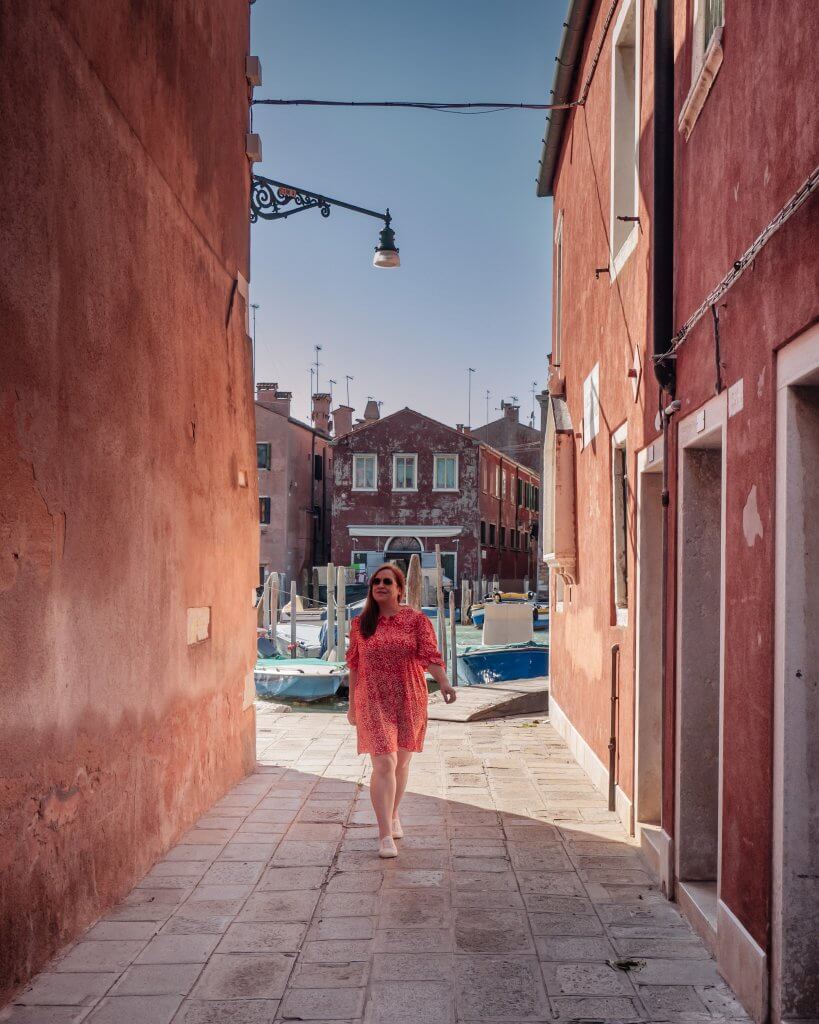
Tip 5: Focus on the things within your control when travelling with chronic illness
It can be so tempting to think negatively like “I can’t travel” or “I can’t do everything that everyone else is doing on the trip so what is the point?”. Instead a simple change to your internal dialogue will help you feel more positive about your trip. Change the narrative to “I CAN travel, I just have to make slight modifications” and “I am not able to do (activity 1) but I am able to do (activity 2)”. Instead of focusing on what is out of our control, like having a chronic illness (no-one in their right mind would choose to live that way) focus on what is within your control, and that is the way we deal with having chronic illness. It is a huge challenge but it is important to find a way to live with chronic illness without letting it define who you are. You will always be more than your illness and it is important to remember that.

Tip 6: Develop a healthy lifestyle that works for you whether you are at home or thousands of miles away
The thing about having a chronic illness is that it is just that….chronic! It is unlikely to just decide to leave you anytime soon and probably by now you will have learned techniques and developed a healthy lifestyle to keep it at bay as much as possible. Those same techniques and routines also need to be applied when you are travelling and this unfortunately is where you need to be strict with yourself.
Most healthy people who travel throw the healthy lifestyle out of the window when they travel. They let loose and why shouldn’t they, they are on holiday. They eat all the ice cream and fried foods. They drink and may even smoke when they are away which is something that they wouldn’t do at home. My husband doesn’t smoke but as soon as he hits European soil all he wants is a cigarette! And it is fine to ditch the gym or take a break from the mindful meditation if you are healthy. You can easily slot back into it when you get home with very little damage done.

But, if you have chronic illness it can be detrimental to ignore the healthy habits that you have established to dampen down the viciousness of your disease. You can’t risk your chronic illness seeing an open door and taking hold because those of you reading this with chronic illness will know how hard it can be to put that beast back in the cage. So if you have techniques or healthy habits that help you in your illness please don’t leave them at the departure gate. I know that everyone’s disease process is different so I am not mentioning specific techniques, what works for you might not work for others and vice versa.
Tip 7: Alternate between periods of rest and activity
This tip will probably come as no surprise to those of you already living with chronic illness. We already spend most of our time alternating between periods of rest and activity. By making the most of the days you feel good and having rest days in between, you won’t be pushing yourself to do more than you are physically able to do. You’ll also have more energy for the things you really want to do!
When I travel now I always book at least two extra rest days. Days where I know that I won’t be doing anything already so I don’t have the fear of missing out. I usually plan one for the middle of my trip and the day before coming home. Apart from the accommodation they are low cost days because you won’t be doing any activites or going for fancy meals out. These are the days we put Netflix on the hotel TV room and just chill. These rest days allow me to have the energy for the other activities that I don’t want to miss. Most hotels also have offers like stay 4 nights pay for 3 etc so avail of these so that you have enough time to rest on your trip.

Tip 8: Quality over Quantity always
Able bodied people often have the luxury of packing it all in or burning the candle at both ends when they are on vacation. The same can’t be said for someone travelling with chronic illness. If you only have enough energy for 1 or 2 activities that day, make it count. Don’t waste your energy on things that don’t matter to you. Communicate with the people you’re traveling with and if needs be, encourage them to go on the next activity without you. That way you get to rest for the next activity you want to do and you’re not holding anyone back.
Prioritize the things you want to do most, and plan for the rest of them if you feel able, so it’s not disappointing if you need downtime.

Tip 9: Prepare medications in advance of travelling with chronic illness
Make sure your prescriptions are up to date and that you have all the medication that you usually take well in advance of your trip. Bring slightly more medication than you need to cover you in case there are delays or for whatever reason you have to extend your trip. I also find it useful to make a list of my medications or things I might need in a pharmacy in the language of the country that I am travelling to as a list on my phone. Even something as simple as antacids can be hard to get if you don’t know how to ask for them in the country that you are in and having it written down makes it easier to understand without the pronunciation issues.
While you are at it learn the name of your condition in the country you are visiting if English is not widely spoken. If your condition means you need to have ready access to particular facilities (such as a toilet), learn the word for that too.
I always find it useful to have your medications in a carry-on bag just incase you need them on your flight.

Tip 10: Don’t be ashamed to communicate
Most chronic illnesses are invisible meaning it will be almost impossible for those who you are travelling with to fully understand your limitations without you telling them. Don’t hide your illness or be ashamed of it. I know that growing up in Ireland the attitude was very much not to discuss your illness or things that might make you appear weak to others or that could hold you back. But times are changing and it is so important not just for yourself but for the many others struggling with chronic illness to use your voice to share your story so that others can understand. People can’t understand what you are going through if you don’t tell them!

Tip 11: Take items for your rest periods
Rest periods are pretty essential if you have a chronic illness, and when better to relax then on vacation! Stock up on novels and magazines, and download podcasts, meditation apps and music. If your friends / relatives are off on an excursion that you prefer to sit out on, why not do some gentle yoga in your hotel room? Or relax by the pool with a novel, colouring book, knitting, sewing or whatever takes your fancy. After all, we can do whatever makes us happy on holiday! I always stockup on snacks for the hotel room also incase I am too tired to venture out.
“Vacations are supposed to be Fun not Effort: This is a holiday not a Quest for the Holy Grail. You do not need to be busy every single minute.” – Nikki aka Brainless Blogger
Tip 12: Research your destination throughly
The key tip for travelling with chronic illness is research, research, research. The one thing you do not want to do is travel unprepared. If you have disability or mobility issues make sure that the hotel you book is fully accessible and has a lift. Stairs are my issue and I can’t tell you how many beautiful apartments I have booked in authentic European buildings only to discover no lifts and multiple flights of stairs! No way I could get my suitcase up them without Mister Lavin. I would have to spend my entire holiday changing in the lobby!
If you have multiple allergies research restaurants before you go to avoid the stress of finding somewhere suitable when you get there. I always find it advisable to also pre-book your table before you go. Not only will this guarantee you a seat without having to wait around but having some structure to your day also helps you plan your daily itinerary so you know what is coming up and plan rest periods around it. If you have a rare disease it might be worth researching if there will be a specialist in the area you are travelling to in case you have a bad flare-up or emergency.
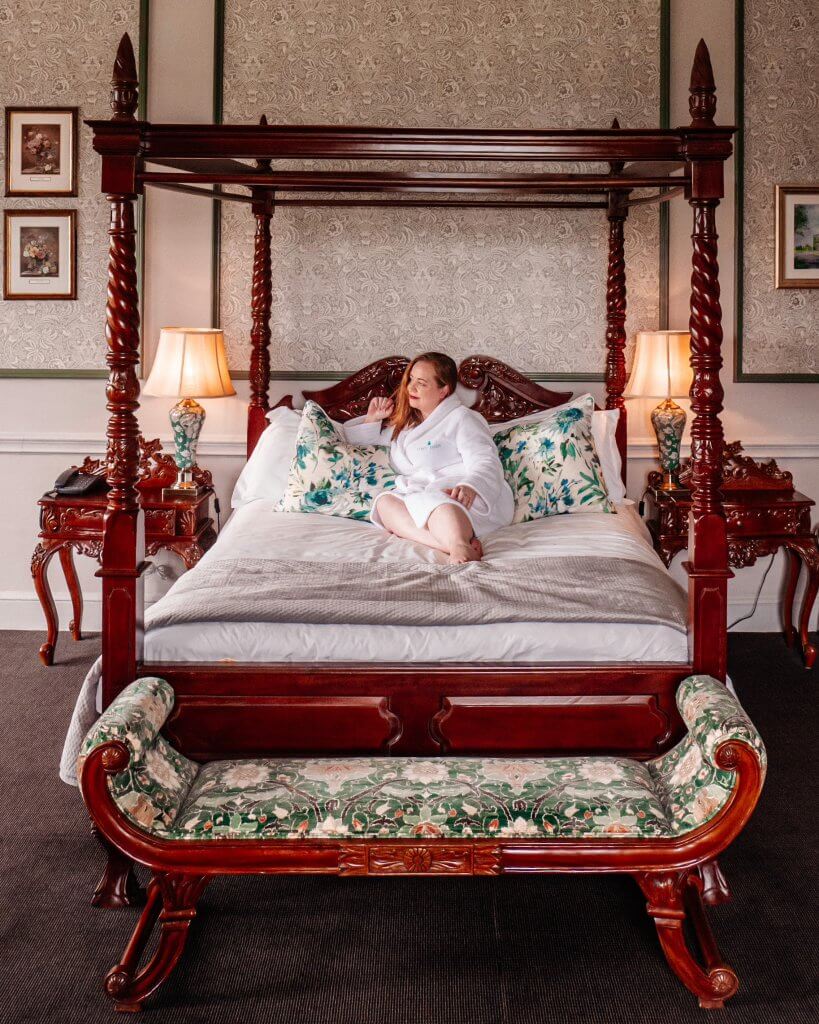
It is also advisable to research what activities you want to do and plan what days you are going to do them on. Having a chronic illness means that flexibility is key but it is still advisable to have some idea of the itinerary before the trip. It is often helpful to plan lighter activity days, or complete rest days, before and after a more adventurous excursion. That way you can still enjoy activities, and hopefully do so without completely sapping your energy.
Research destinations that are suitable to your needs. Positano in Italy is beautiful but not so beautiful if it leaves you crying in pain after climbing steep steps and hills. Venice is just gorgeous but the numerous bridges and narrow streets make it completely inaccessible for a wheelchair user or someone with mobility issues. Make sure that you study the geographical area of the place you want to visit to make sure that it is a terrain that you can manage before finding yourself stuck there.
There is so much choice available nowadays so with a little research you are bound to find something to suit your needs. One of the most wonderful holidays that I have had recently was 2 days in Bordeaux. The city was really easy to get around and you could also escape to the vineyards in the French countryside if you wanted to. It was the perfect mix of peaceful countryside and easy proximity to the city for cafes, restaurants and shops to wander around.

Tip 13: Don’t leave home without travel insurance!
Having a chronic illness means that you can feel fine one day and be barely able to walk the next. Apart from the disappointment of having to cancel or cut short a trip, the financial loss can be enormous if you don’t have insurance. I recommend travel insurance with Safety Wing.
Tip 14 : Location, Location, Location
Try to book a hotel in the middle of the city, within walking distance of almost everything that you don’t want to miss. It might be a bit cheaper to stay further out, but adding a long metro ride to the itinerary every day might be enough to make you reconsider going out. In addition, being centrally located means you can take advantage of public transport to get around instead of having to do a lot of walking if you don’t feel up to it.

Tip 15: Bring your home comforts
When joint pain hits I always find it helpful to have a hot water bottle so don’t be afraid to bring your home comforts with you. Whether you need ear plugs or an eye mask to help you sleep, a weighted blanket or a journal to process your thoughts bring them with you. When it comes to journals I am obsessed with this one from The Head Plan.
Being hydrated and comfortable is also super important. I have a guide on how to dress comfortably with chronic illness that might also help you.
In this post you will find some of my favourite travel photos. I know that my photos might look like I can travel easily and pack it all in but remember what I said about invisible illness. Being a travel blogger means that I often have to be up early to get “the shot” but I always make sure that on shoot days I go back to the hotel to rest after an early morning start. I also batch my content and take all the photos that I need in an hour or two so that I can take the rest of the day at my own pace.
Remember that Instagram is just a highlight reel but I can’t begin to tell how much I ENJOY creating this content and styled photos but don’t ever compare yourself to what you see in a photo. You never know what is going on behind it. I also make sure that I rest before attempting to edit my photos and again before writing my travel blogs. Only you know what you are capable of so don’t let other people’s assumptions based on what they think you are capable of put you off or upset you. Even those with chronic illness are guilty of looking at someone else’s Instagram grid and thinking “well she is obviously not as sick as me”. Chronic illness is not a competition and we should always be there to support one another.
I also know there’s a lot about travelling with a disability that I’m not qualified to speak on, like how to handle being wheelchair-bound or how to ensure you’ll have the appropriate medical facilities in the event of an emergency. But sometimes being just sick enough that it doesn’t show can be its own certain kind of disability, especially when you have to rely on the kindness of others to function. I know that I personally don’t need a wheelchair but I certainly wouldn’t describe myself as able bodied. I think however that I am more equipped to discuss this part of the chronic illness world, and I hope that I at least gave you a little bit of confidence to travel and not be afraid to explore the world because there is so much beauty out there..
If you have loved someone with a chronic illness make sure to share this blog with them and if you love my photos be sure to follow along on Instagram.
Are you new here? Join thousands of other happy readers and subscribe to All About RosaLilla blog via email or Bloglovin’. The good news is that by signing up via email you will get tips on dealing with chronic illness straight to your inbox.
If you liked this you might also like:
Why Vilnius should be your next city break
The best things to do in Cannaregio Venice
Until next time you crazy kids!

Sharing is sexy!
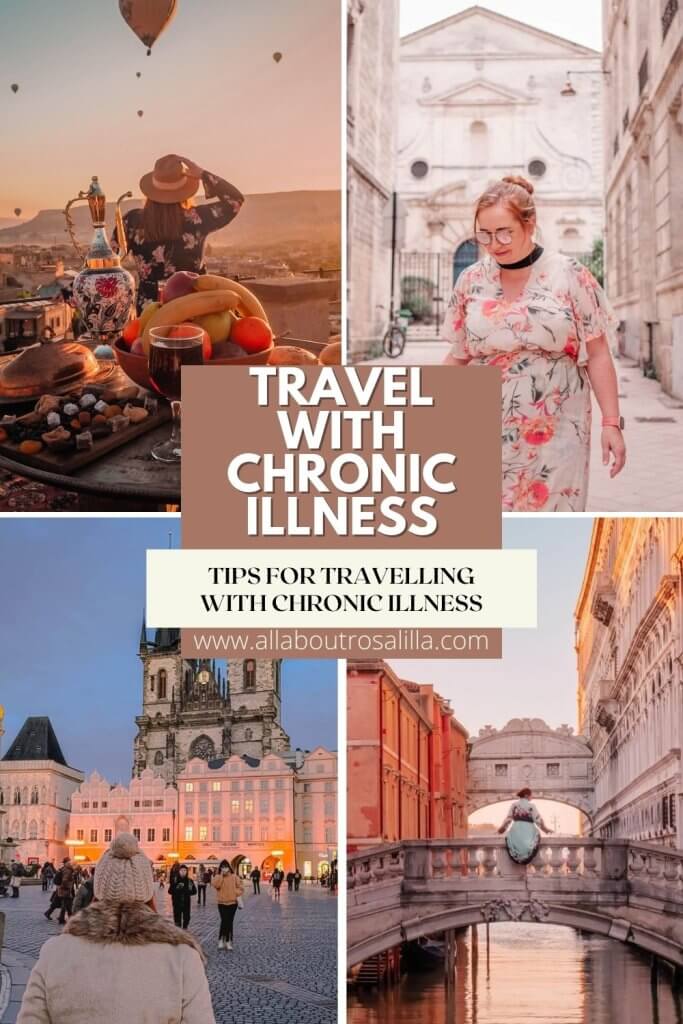

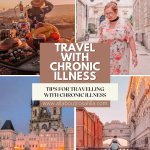
Thank you for this super useful post! I am going interrailing with my best friend in June (this time next month I will be in Amsterdam!). While I am very excited, I am also quite nervous about if I will get a flare-up. We are going for 2&1/2 weeks so I am hoping that I won’t. But I will definitely take these tips onboard x
I’m so happy that you found this post useful and I’m so excited for your trip. The only thing I can add is to listen to and trust your body especially if it tells you it needs rest even if it means skipping one or two museums. Nothing is worth a major flare up. It’s not always easy but travelling with chronic illness can be done. Have the best time xxx